Press Release
Following Fall of FTX & Silvergate, The Crypto Market Needs Sensible Regulation

The FTX collapse guarantees that crypto regulation will be on the US legislative agenda for 2023 — at long last. In total, six bills were introduced in 2022, focusing on a mix of aspects connected to the crypto industry for investor protection or compliance.
As the SEC and the CFTC are jockeying for positions, the number of voices in the room is going to increase. Some don’t want any sort of regulation to exist, but others people in the industry and anti-crypto lawmakers think regulating crypto will legitimize its existence.
The time is right for crypto custody and all other types of platforms to be supervised with certain regulations. The US has the strongest financial market in the world, and that is due in large part to regulation. Regulation will make crypto markets stronger.
No regulatory regime administering traditional finance is created in one fell swoop. Along with the system, the regime also evolves to become better, inclusive, and stronger according to the needs. Disasters like FTX become a teaching lesson for the rulemakers to improve the regulatory system.
The digital asset industry is still in its infancy, but problems like FTX are familiar. There have been previous such events at QuadrigaCX and at Mt. Gox. To prevent these types of massive losses that also deteriorate the market trust, regulatory oversight must begin. Here are five modest, sensible steps that could be taken now that don’t even require much crypto knowledge.
- Stablecoin Reserves
As stablecoins are intended to be less volatile, they play an important role in the digital asset ecosystem. Moreover, they are more practical for everyday transactions. However, these stablecoins have not always been so stable.
These stablecoins are intended to be exchangeable for the underlying asset at a 1:1 ratio. However, stablecoin issuers are not required by law to maintain reserves that are equivalent to the available supply. There is a chance that holders will rush to redeem their coins when a stablecoin loses its peg, creating a situation that resembles a bank run.
That’s exactly what happened with TerraUSD in May of 2022. Recently, the US SEC has found another strong point of concern against the platform, making the former stronger. It relied on trading based on a mint and burn algorithm linked to the supply of LUNA, a cryptocurrency issued by Terra. Ironically, Sam Bankman-Fried is now under investigation for manipulating the market for TerraUSD, whose collapse touched off the industry crisis that ultimately exposed his other misdeeds at FTX.
Yet, none of that is necessary to know in order to determine whether a stablecoin is backed by a dollar. The quantity of circulating stablecoins is equal to the number of dollars in reserve. Stablecoin issuers should be required to keep 1:1 reserves at FDIC-insured banks.
The birth of FDIC insurance came after the bank failures during the early 1800s. Quarterly audits of reserves and real-time reporting on mint and burn activity should be mandatory. We also need to implement safety and soundness controls with a diversity of banks proportional to reserve size.
- Separate Trading And Custody
Customers’ requirement to maintain their money with the exchange under the current market structure is fundamentally wrong. It is not necessary to be an expert in cryptography to understand why that is a bad idea. Imagine that the Nasdaq asked the SEC to serve as its own custodian, is it possible?
The issue with counterparty risk persists even after being entirely honest. Many of these crypto custody platforms and exchanges also engage in different kinds of lending. They engage in market-making and arbitrage. As they continue to trade and hedge on other exchanges, identifying the counterparty risk on the exchange is impossible. The reason being it’s the sum of the exchange’s risk plus the risk of whatever other markets they’re participating in that plays an important role in risk assessment.
If there’s anything one should learn from the FTX collapse, it’s that assets should be stored until required for trading by external, qualified, regulated, and insured custodians. This creates a check-and-balance for verifying reserve assets under any exchange’s control.
The public may have learned sooner that FTX was in a crisis in a fractional reserve position if trading and custody had been kept separate. After the bankruptcy, it would have been simpler to stop asset theft and hacking.
- Require Digital Asset Exchanges To Be 100% Digital
Discontinuing direct trading of digital assets with fiat or off-chain assets will make all exchanges on-chain auditable. As a result, it will enable Proof-of-Reserves that actually work. At present, Proof of Reserves does bring some level of transparency, but they are not a foolproof solution for separating who’s solvent and who’s not, for two reasons.
- No one can practice it for reserves on fiat because they cannot be represented in a digital way.
- It’s not possible to give proof of non-liabilities, which is really the thing that matters most. FTX combined fiat, and digital reserve components and their liabilities far outstripped their reserves.
With pure digital exchanges representing fiat digitally as a regulated stablecoin, Proof of Reserves for everything can become a reality. The last thing to be solved is the liabilities component.
A reasonably solid and effective system with compliance can be built by fixing settlement and clearing to be entirely digital. Exchanges are currently attempting to establish a business in a hybrid world because they have no other option. So, as a transition, it is preferable to package fiat and securities in digital form. The ability to work in a digital environment will be significantly improved after the archaic wrappers have been removed.
- Regulate Digital Asset Exchanges’ Use Of Omnibus Wallets
In an omnibus wallet, the funds of multiple clients are stored under a single address. The benefit is that it makes key management easier for the custodian and also makes it easier to enable efficient off-chain transactions.
However, one of the main limitations is that individual customers no longer have visibility into the transactions. Neither do they have any information on the counterparty risk. It’s also unclear what happens to each customer’s funds in the event of bankruptcy.
Omnibus wallets are only acceptable when the qualified crypto custody platform is aware of each of the exchange’s clients in the omnibus pool and assets are segregated in such a way as to provide bankruptcy protection to each client. The custodian must also participate in AML/KYC compliance of exchange clients.
- Define Securities For The Digital Era
The SEC is still using an ancient definition of securities which was developed in the 1940s. The result is it leads to underpinning their enforcement efforts. Builders in crypto have honest questions about how the rule applies to them, and they deserve answers.
Can the SEC not update their definition and upgrade the meaning of securities while taking into account the crypto era? How hard would it be for the SEC to provide an updated definition, detailed guidance, and sensible grandfathering policies? Having that clarity would go a long way toward providing protection to innovators and investors alike.
They should listen more to Commissioner @HesterPeirce, who has an open opinion that the agency should not be leading with enforcement. Enforcement is clearly in their purview, but there’s an opportunity to make the enforcement load a lot lighter by providing appropriate guidance, to begin with.
What occurred at FTX was a common form of financial fraud that has been practiced for ages. The sole connection between cryptocurrency and blockchain technology is that a lack of regulation created a level playing field for dishonest players.
Conclusion
At present, the crypto community understands SEC’s Custody Rule. These rules are meant to safeguard the crypto industry. As per this rule, the crypto custody and other types of platforms are required to separate custody from trading. This move is hailed as a positive aspect of the crypto industry.
The crypto industry is in dire need of regulatory administration aimed at preventing catastrophic investor losses. Designers and builders are more than capable of architecting a better system to meet the requirements of regulators. Once people can’t be rug pulled or defrauded, the next discussion will be about more nuanced issues and building something more comprehensive.
It will take a collective effort to get through this phase. FTX isn’t the first exchange to run into trouble; it’s just the biggest. It is easy to compartmentalize it as one guy who was a charlatan and go back to business as usual. However, doing so will be like setting the industry up for the next failure. To come out stronger and better, it is essential to use this opportunity to take a few simple steps in the direction to lead the industry into a new direction in order to thrive.
Press Release
PlatON Announced as Secondary Exhibition Sponsor for Hong Kong Web3 Festival 2026
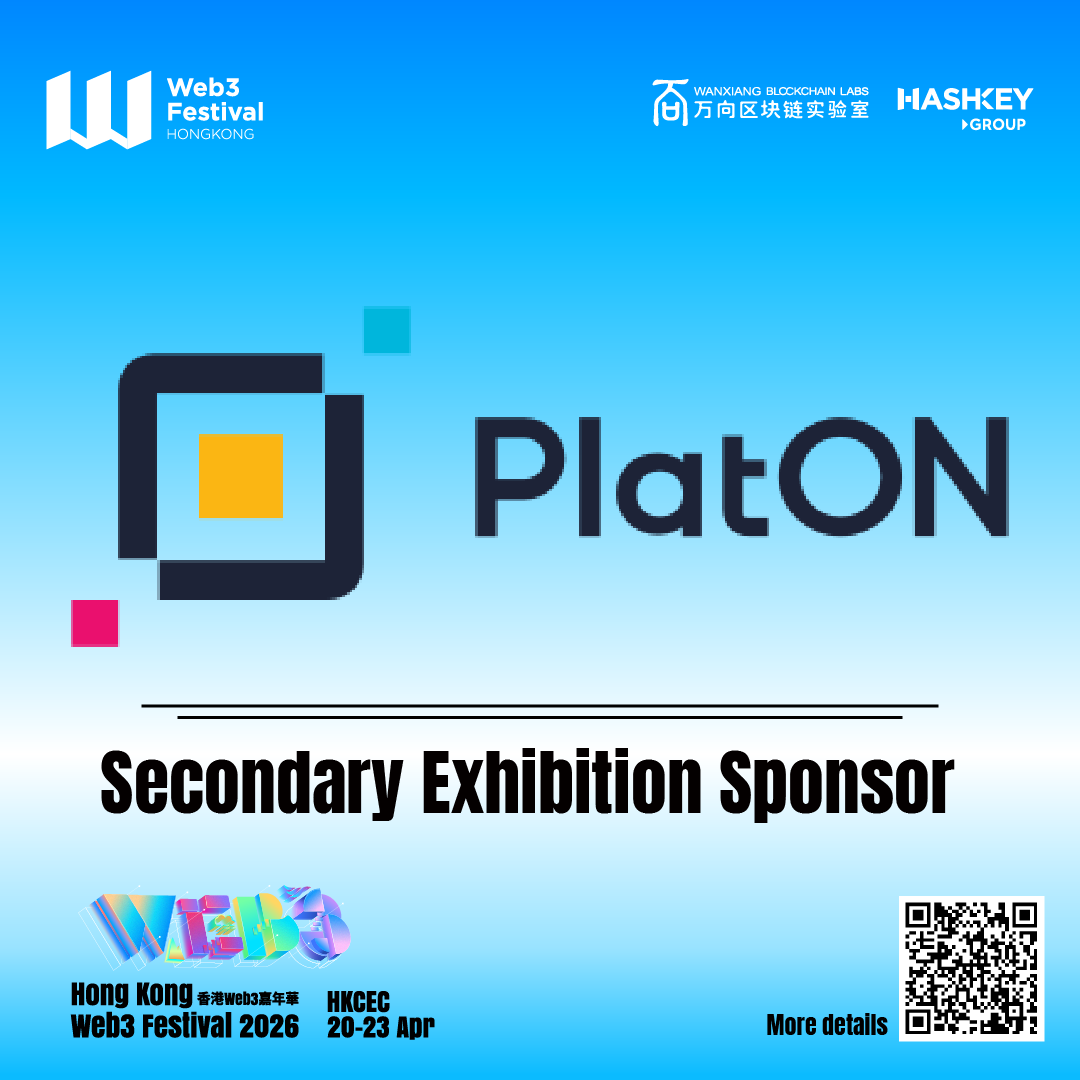

Hong Kong, 10th February 2026, The Hong Kong Web3 Festival 2026 just got another major sponsor on board. PlatON is coming in as a Secondary Exhibition Sponsor, and honestly, it’s a pretty good fit given what they’re trying to accomplish in the financial infrastructure space.
So what exactly is PlatON? It’s an open financial infrastructure platform that the LatticeX Foundation put together. The really cool part is this thing called TOPOS that sits on top of it – basically, it’s designed to help banks and payment companies actually make sense of blockchain technology and use it for real-world payments and clearing. We’ve all heard the talk about blockchain revolutionizing finance, but PlatON is actually trying to make that happen by building something traditional financial institutions can actually work with.
They’ve got the technical chops for it too – we’re talking high-frequency transaction processing, quick settlements, smart contracts that can handle multiple types of assets. This isn’t some experimental project; it’s built to handle serious stuff like cross-border payments, institutional settlements, and managing digital assets in a way that keeps regulators happy. If you want to dive deeper into what they’re doing, head over to https://platon.network.
Now, the festival itself has become a pretty big deal since it kicked off back in April 2023. Wanxiang Blockchain Labs and HashKey Group run it together, with W3ME handling the organization, and it’s turned into the go-to event for anyone serious about Web3 in Asia. It’s where people actually show up to talk about what’s working, what’s not, and where all of this is heading.
Mark your calendars for April 20-23 if you’re planning to go – it’ll be at the Hong Kong Convention and Exhibition Centre. The past three years have been pretty wild: 350+ exhibitors, over 1,200 speakers, 100,000 people coming through the doors, and more than 400 side events happening around the main conference. That’s a lot of activity packed into a few days.
This year they’re lining up around 300 speakers to cover pretty much every corner of Web3 and crypto. But here’s what’s really interesting – they’ve already got 500+ executives and decision-makers from traditional finance and regular businesses signed up. That’s not your typical crypto crowd. It means you’ve got old-school finance people genuinely trying to understand this space, sitting down with crypto natives, and actually having productive conversations. Those are the kinds of interactions that lead to real progress.
The fact that it’s in Hong Kong matters more than you might think. The city has always been this weird and wonderful mix of East and West, traditional finance and cutting-edge tech. It’s got one foot in Mainland China’s massive market and the other in the global financial system. That positioning means the festival can pull in people and ideas from everywhere, giving you access to perspectives and opportunities that just don’t exist at Western crypto conferences or purely Asian tech events.
Whether you’re already neck-deep in DeFi or you’re just trying to figure out what all the fuss is about, this has become the event that actually matters in the Asian crypto calendar.
Check out all the info at https://www.web3festival.org/hongkong2026/#/en.
Thinking about becoming a partner? Here’s where you start: https://tally.so/r/w5YEbP.
Press Release
TokenPocket Announced as Platinum Sponsor for Hong Kong Web3 Festival 2026
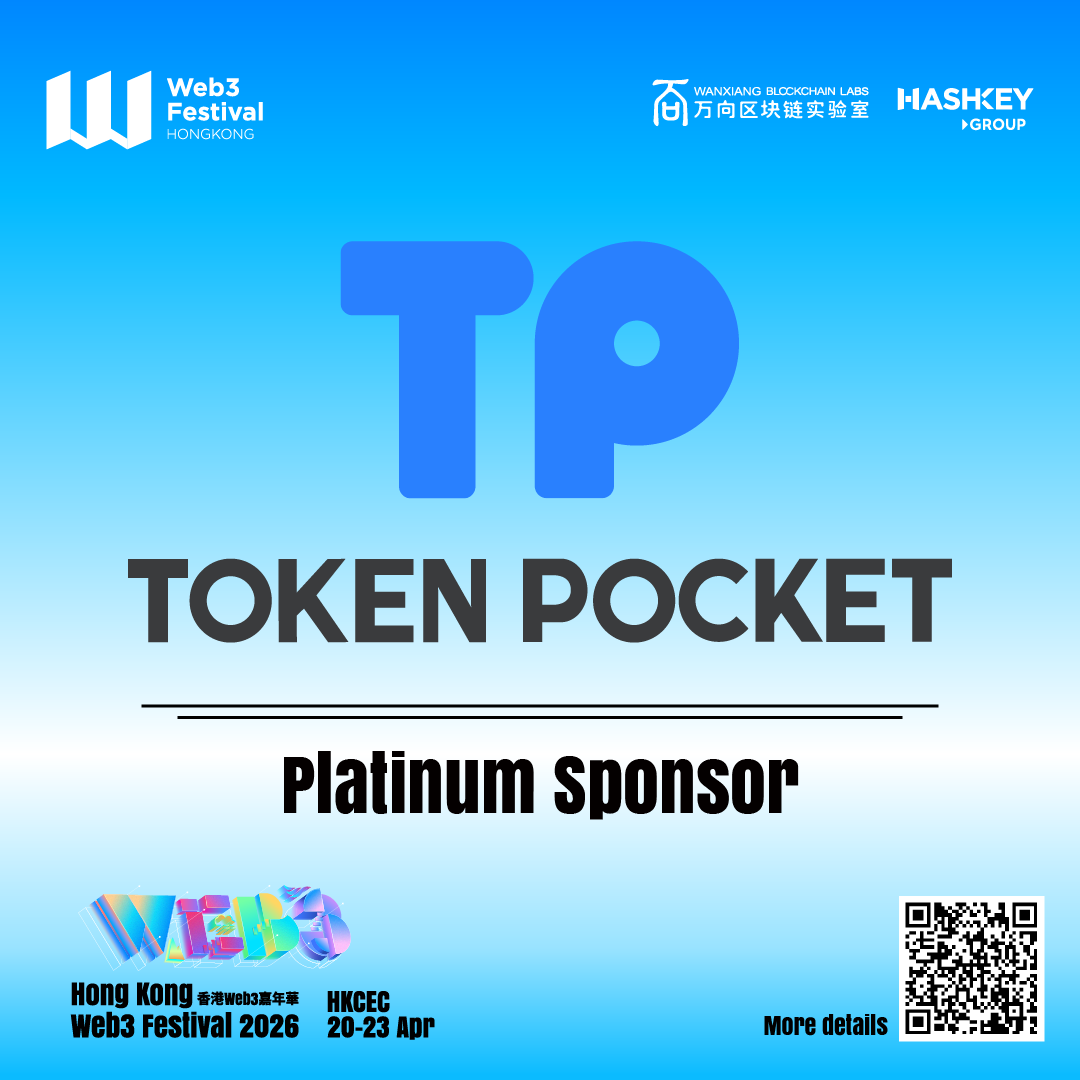

The Hong Kong Web3 Festival 2026 has announced TokenPocket as a Platinum Sponsor, further strengthening the event’s position as Asia’s premier gathering for blockchain innovation and decentralized technology. This strategic partnership brings together one of the industry’s leading multi-chain wallet providers with the region’s most influential crypto conference.
TokenPocket, a pioneering decentralized wallet platform, joins the festival as a key partner, bringing its expertise in blockchain infrastructure and stablecoin payment solutions to an event that has become essential for anyone serious about Web3’s future in Asia and beyond. The collaboration underscores the accelerating momentum behind Web3 adoption and reinforces Hong Kong’s strategic importance as a global hub for digital asset innovation and regulatory clarity.
About TokenPocket
TokenPocket stands as one of the cryptocurrency industry’s leading decentralized wallets, purpose-built for seamless multi-chain integration and efficient stablecoin transactions. The platform offers comprehensive accessibility through mobile applications, browser extensions, and the KeyPal hardware wallet, ensuring users can manage digital assets securely across multiple devices and environments with consistent functionality.
The wallet delivers enterprise-grade security protections combined with innovative features specifically designed to enhance user experience and reduce common pain points in digital asset management. Among its most notable capabilities is zero-gas-fee transfer functionality across multiple blockchain networks, significantly reducing transaction costs and eliminating friction that has traditionally hindered widespread crypto adoption. This powerful combination of robust security architecture and user-centric features positions TokenPocket as a truly decentralized, multichain wallet solution suitable for both cryptocurrency newcomers and experienced traders seeking advanced functionality.
TokenPocket’s participation as a Platinum Sponsor demonstrates the company’s commitment to supporting ecosystem development and fostering connections between infrastructure providers, developers, and institutional players across the Web3 landscape.
For more information about TokenPocket, visit https://tp.xyz/
About Hong Kong Web3 Festival 2026
The Hong Kong Web3 Festival, co-hosted by Wanxiang Blockchain Labs and HashKey Group and organized by W3ME, has firmly established itself as Asia’s premiere cryptocurrency and blockchain gathering since its launch in April 2023. The annual event serves as a critical convergence point for the world’s leading innovators, thought leaders, policymakers, and decision-makers in the Web3 and crypto ecosystems to explore emerging trends, regulatory developments, and technological breakthroughs shaping the industry’s future.
The 2026 edition will take place from April 20 to 23 at the Hong Kong Convention and Exhibition Centre, continuing the festival’s tradition of bringing together the brightest minds in decentralized technology. Previous editions have demonstrated remarkable scale and influence, collectively attracting over 350 exhibitors, more than 1,200 speakers, and a cumulative audience exceeding 100,000 visitors from around the world. The festivals have also catalyzed over 400 diverse side events, creating unparalleled networking and collaboration opportunities across the entire Web3 landscape.
This year’s festival is projected to feature up to 300 speakers representing every facet of Web3 and cryptocurrency, from blockchain infrastructure and DeFi protocols to NFTs, metaverse applications, gaming, and enterprise adoption strategies. Significantly, the event has already attracted registrations from over 500 executives and corporate decision-makers from traditional finance sectors and real economy industries, establishing the conference as a high-level platform for substantive dialogue, knowledge transfer, and strategic partnerships between Web3 innovators and traditional business leaders.
Hong Kong Web3 Festival leverages the city’s distinctive advantages as a global financial center and innovation powerhouse. This strategic positioning enables the event to bridge Mainland China’s vast market potential with worldwide Web3 developments, creating unique opportunities for cross-border knowledge exchange and business development. By bringing together premier resources, talent, and capital from across the globe, the festival provides attendees with exclusive access to cutting-edge Web3 updates, market insights, and networking opportunities unavailable elsewhere in the Asia-Pacific region.
For comprehensive event details, visit: https://www.web3festival.org/hongkong2026/#/en
Organizations interested in partnership opportunities can apply at: https://tally.so/r/w5YEbP
Press Release
Sui Foundation Announced as Exclusive Dinner Sponsor for Hong Kong Web3 Festival 2026


Hong Kong Web3 Festival 2026 is pleased to announce Sui Foundation as an Exclusive Dinner Sponsor, marking a significant partnership that underscores the growing collaboration between leading blockchain innovators and Asia’s premier crypto gathering.
Sui Foundation is an independent organization dedicated to growing and cultivating long-term value in the SUI ecosystem. The foundation supports developers, creators, and enterprises building on Sui, a next-generation blockchain platform designed for scalability and user-friendly experiences. Through strategic initiatives, grants, and community programs, Sui Foundation plays a vital role in advancing Web3 innovation globally. Their sponsorship of this year’s exclusive dinner event will provide attendees with unique networking opportunities alongside industry leaders and blockchain pioneers. For more information, please visit: https://www.sui.io/
The Hong Kong Web3 Festival (“Web3 Festival”), co-hosted by Wanxiang Blockchain Labs and HashKey Group and organized by W3ME, is Asia’s premiere crypto gathering that has been annually held since April 2023. It convenes the world’s smartest minds in the Web3 and crypto space to discuss the latest trends, policies, and technological breakthroughs shaping the future of decentralized technologies.
This year’s Hong Kong Web3 Festival will take place from April 20 to 23 at the Hong Kong Convention and Exhibition Centre, spanning four days of intensive programming, exhibitions, and networking events. The previous three editions of Web3 Festival brought together over 350 exhibitors and more than 1,200 speakers for in-depth discussions, attracted a cumulative total of 100,000 visitors, and saw over 400 diverse side events. These impressive numbers reflect the festival’s position as a must-attend event for anyone serious about the Web3 industry.
Web3 Festival 2026 will feature up to 300 speakers representing all aspects of Web3 and crypto on its stages, including blockchain developers, cryptocurrency innovators, DeFi pioneers, NFT creators, metaverse architects, and institutional investors. The event has also attracted registrations from over 500 executives and corporate decision-makers in traditional finance and real economies, demonstrating the increasing mainstream adoption of blockchain technology. This diverse attendance enables the conference to serve as a high-level platform for in-depth dialogues and high-value connections between emerging tech leaders and established financial institutions.
As Asia’s premier crypto event, Web3 Festival leverages Hong Kong’s unique position as a global financial center and innovation powerhouse, bridging the vast market potential of Mainland China with worldwide Web3 advancements. This strategic positioning is particularly significant as Hong Kong continues to establish itself as a leading Web3 hub with progressive regulatory frameworks and strong government support for digital asset innovation. The unique positioning enables the event to bring together the best resources from across the globe, offering attendees first-hand Web3 updates, networking opportunities, and insights into emerging market trends that will shape the industry’s future.
The partnership with Sui Foundation further elevates the festival’s reputation as the meeting point for blockchain innovation and enterprise adoption in the Asia-Pacific region.
Get all the details here: https://www.web3festival.org/hongkong2026/#/en
Be our partner: https://tally.so/r/w5YEbP
-

 Crypto4 years ago
Crypto4 years agoCardalonia Aiming To Become The Biggest Metaverse Project On Cardano
-
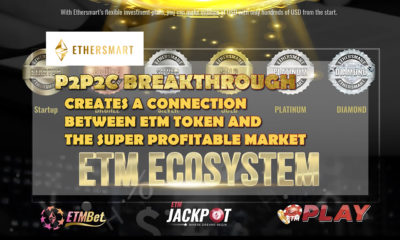
 Press Release5 years ago
Press Release5 years agoP2P2C BREAKTHROUGH CREATES A CONNECTION BETWEEN ETM TOKEN AND THE SUPER PROFITABLE MARKET
-

 Blockchain5 years ago
Blockchain5 years agoWOM Protocol partners with CoinPayments, the world’s largest cryptocurrency payments processor
-

 Press Release5 years ago
Press Release5 years agoETHERSMART DEVELOPER’S VISION MADE FINTECH COMPANY BECOME DUBAI’S TOP DIGITAL BANK
-
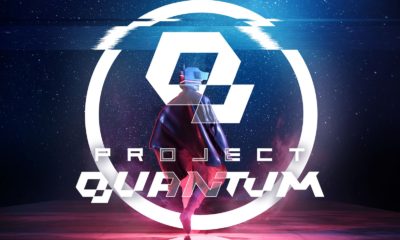
 Press Release5 years ago
Press Release5 years agoProject Quantum – Decentralised AAA Gaming
-

 Blockchain5 years ago
Blockchain5 years agoWOM Protocol Recommended by Premier Crypto Analyst as only full featured project for August
-
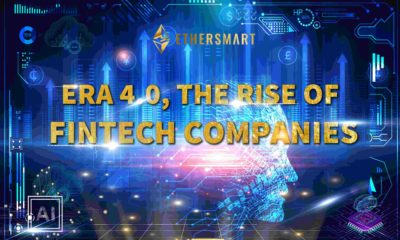
 Press Release5 years ago
Press Release5 years agoETHERSMART DEVELOPER’S VISION MADE FINTECH COMPANY BECOME DUBAI’S TOP DIGITAL BANK
-
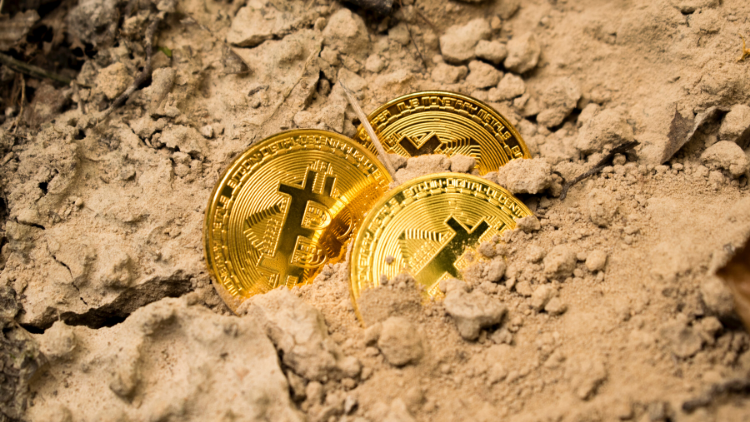
 Blockchain6 years ago
Blockchain6 years ago1.5 Times More Bitcoin is purchased by Grayscale Than Daily Mined Coins






